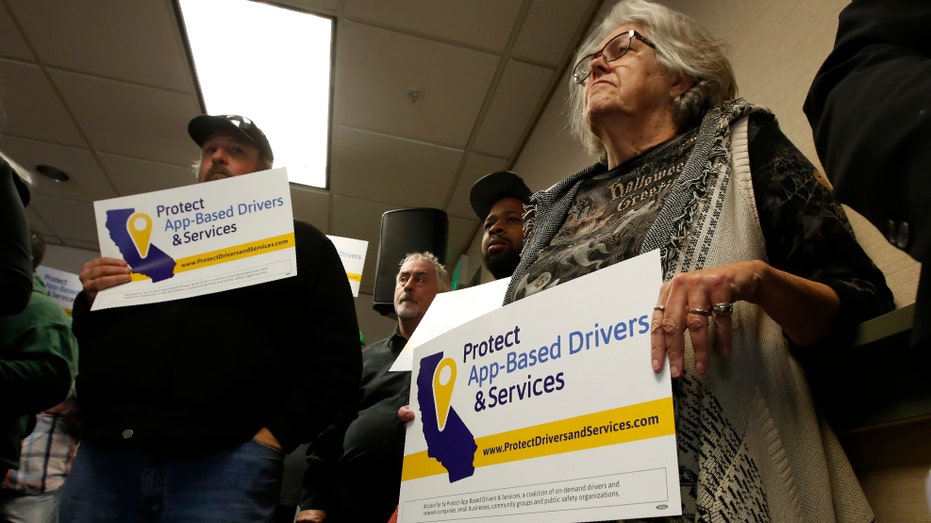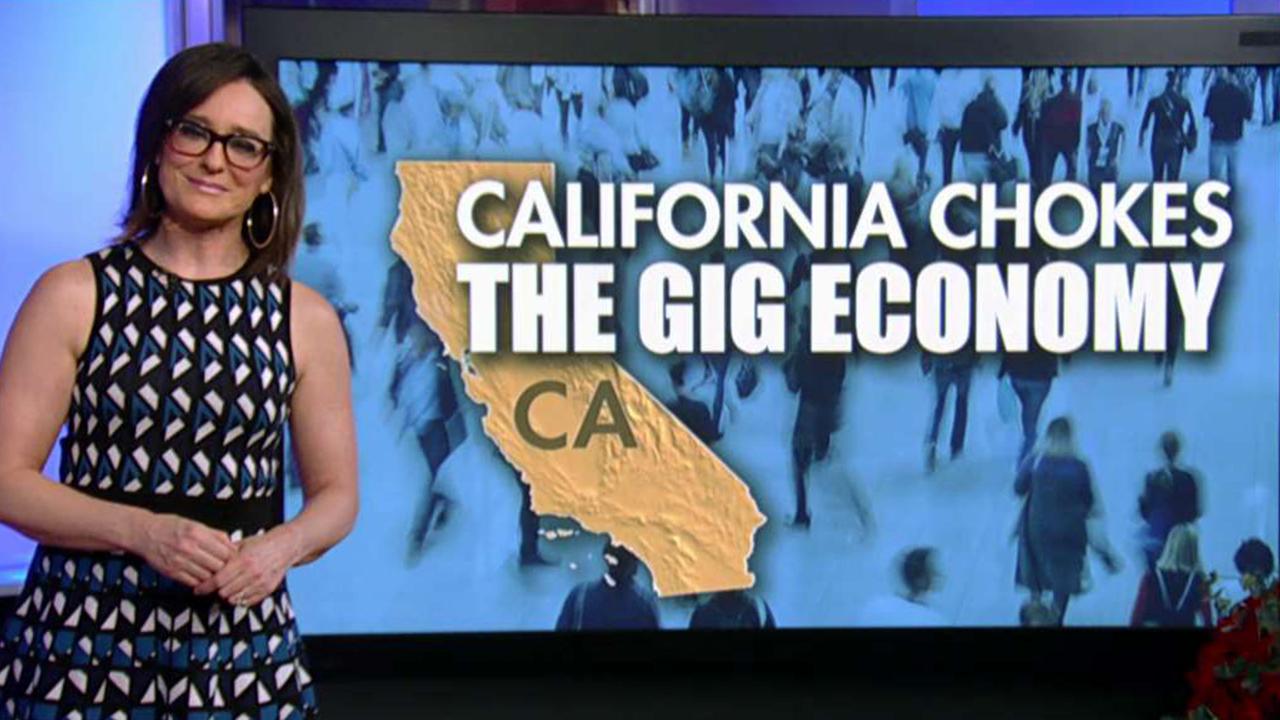Why the gig economy is popular: Americans love a side hustle
The U.S. gig economy has taken off in recent years as more Americans take on second jobs.
Nearly half of Americans who work a second job say they do it as a personal preference to earn more money, according to a recent U.S. job-quality report by Gallup based on responses from over 6,000 U.S. workers.
The report found that 48 percent of Americans work second jobs as their "preference," 33 percent work second jobs for "financial need," 2 percent work second jobs because they can't find full-time jobs and 16 percent do it for another reason not listed.
THE US GIG ECONOMY WILL OUTPACE ALL JOB CREATION BY 2025
App-based gig-worker jobs like driving for Uber and Lyft, delivering food for GrubHub and DoorDash or renting a home on Airbnb have brought millions of new independent contractor jobs to the market.
While the exact number of gig workers in the U.S. is unknown because there is no clear definition of what constitutes a "gig worker" in America, a June 2018 report by the U.S. Bureau of Labor Statistics estimated that contingent workers make up about 5.9 million -- or 3.8 percent -- of U.S. workers.
That number continues to grow as certain jobs become available to do from a home computer. And as gig jobs become more popular, legislators and presidential candidates have called for more regulation in the industry to increase worker protections.
UBER OFFERS CONCESSIONS IN CALIFORNIA FIGHT: STATUS CHANGE FOR WORKERS, MINIMUM PAY
California, for example, passed a new labor law this year that aims to give wage and benefit protections, including a state-mandated minimum wage of $12-$13 per hour, to people who work as independent contractors with a focus on rideshare drivers. The law is set to take effect Jan. 1.

Carla Shrive joined other drivers to support a proposed ballot initiative challenging a recently signed law that makes it harder for companies to label workers as independent contractors, in Sacramento, Calif. (AP Photo/Rich Pedroncelli, File)
"Gig companies present themselves as the innovative future of tomorrow -- a future where companies don’t pay Social Security or Medicare," Democratic state Sen. Maria Elena Durazo said when the bill was being considered. “Let’s be clear: there is nothing innovative about underpaying someone for their labor."
Some workers have not taken kindly to the new law, including freelance writers and photographers, who have sued the state, saying the law will unconstitutionally affect free speech and the media because it limits news outlets to 35 submissions each year.
The California Trucking Association filed the first challenge to the law on behalf of independent truckers in November. Uber, Lyft and DoorDash have said they will spend $90 million on a 2020 ballot measure opposing the law if they can't negotiate other rules for their drivers.
Drivers have reported a decrease in riders since Uber and Lyft also moved pickup destinations closer to more populous areas to save money.
CLICK HERE TO READ MORE ON FOX BUSINESS
"I don’t believe legislators realized the impact this had," Gene Zaino, founder and executive chairman of freelance service MBO Partners, told CNBC. "Legislators didn’t realize at the same time, they impacted millions of people in thousands of businesses that are using freelancers, even though that was not their intent. A lot of businesses are paralyzed, in terms of 'everyone needs to be on payroll.'"
"There are people that want to be independent contractors," Zaino added. "They want the freedom and the choice and don’t want their clients to be afraid to use them."
The Associated Press contributed to this report.




















